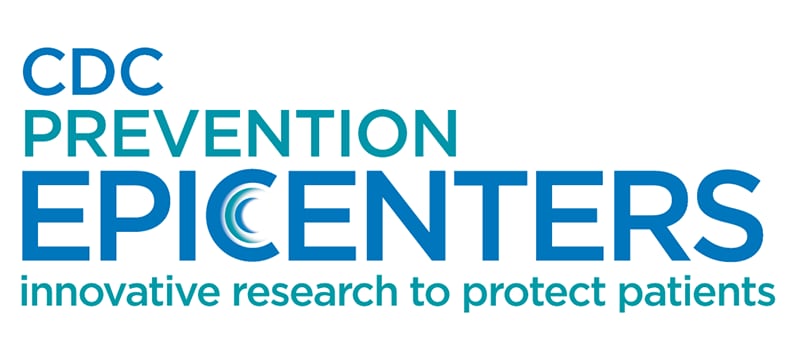Duke University-University of North Carolina Prevention Epicenter

About this Epicenter
The Duke-UNC Prevention Epicenter has noteworthy expertise in infection control and antimicrobial stewardship in community hospitals via two successful programs: the Duke Infection Control Outreach Network (DICON) and Duke Antimicrobial Stewardship Outreach Network (DASON). These networks include 65 and 35 community hospitals respectively in six southeastern states. Additionally, the Duke-UNC Prevention Epicenter has significant laboratory infrastructure support and capabilities for molecular studies through the Disinfection, Resistance, and Transmission Epidemiology (DiRTE) laboratory.
Investigators in the Duke-UNC Prevention Epicenter have considerable experience and research expertise in hospital epidemiology, infection control, antimicrobial stewardship (AS), epidemiologic studies of multidrug-resistant organisms, and disinfection and sterilization.
Core Research Study Areas
Core projects from the Duke-UNC Prevention Epicenter include six unique studies that address four specific lines of investigation: environmental disinfection, antimicrobial stewardship (AS), diagnostic stewardship, and community-acquired Clostridioides difficile (C. diff) infection (CA-CDI).
These studies involve patients in the community, as well as those admitted to local and academic hospitals. These objectives will be achieved by using the strengths of a unique, innovative, and previously successful collaboration between investigators in the Duke Center for Antimicrobial Stewardship and Infection Prevention and the University of North Carolina at Chapel Hill. This collaboration utilizes the programmatic strengths of both institutions: expertise in environmental disinfection, infection prevention, epidemiology, surveillance, AS, AR and emerging infections, in addition to access to large and unique research networks and infrastructure.
These studies:
- Assess new strategies to reduce environmental contamination with pathogens related to hospital sinks and plumbing
using:- Pall filters and drain covers and
- Engineered plasmids
- Identify and evaluate innovative AS interventions and metrics to decrease AR and patient harm:
- At transitions of care (e.g., discharge) in community hospitals and
- Related to post-operative antibiotics;
- Develop and validate reflex urine culture criteria to guide improved utilization of urine cultures; and
- Review and confirm the contribution of environmental sources on acquisition and occurrence of CA-CDI.
Core research study areas include:
- Prevent pathogen transmission from the hospital environment
- Assess new strategies to prevent sink contamination with epidemiologically important pathogens
- Evaluate a novel intervention (i.e., plasmids) to eliminate sink P-trap contamination
- Prevent AR and adverse drug events through AS
- Evaluate strategies to ensure necessity for post-discharge antibiotics
- Prevent adverse events from unnecessary or misinterpreted diagnostic tests through diagnostic stewardship
- Evaluate parameters for improved use of reflex urine culture
- Prevent C. diff infections
- Identify C. diff in environmental settings outside the hospital